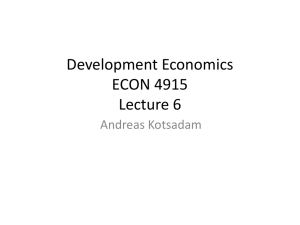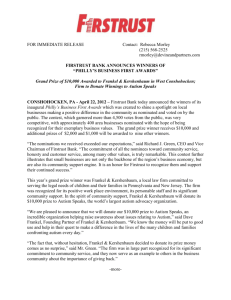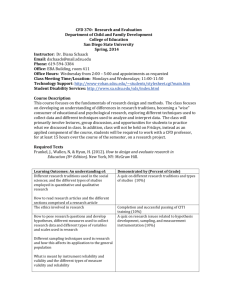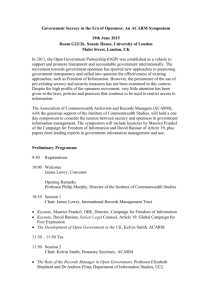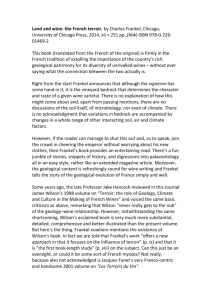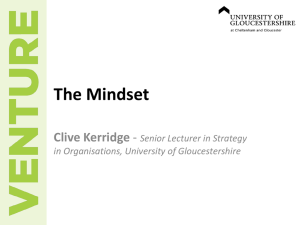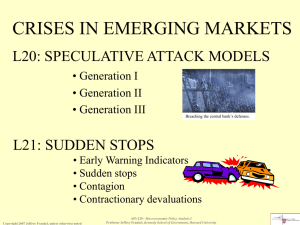Tom Keene - Harvard Kennedy School
advertisement
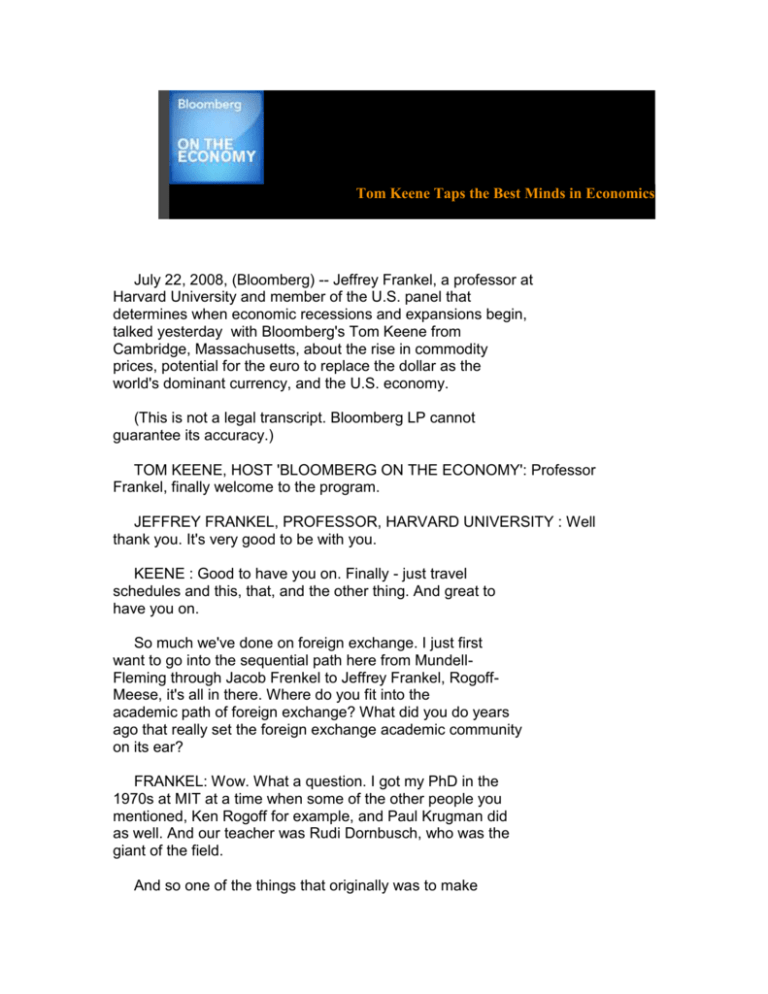
Tom Keene Taps the Best Minds in Economics July 22, 2008, (Bloomberg) -- Jeffrey Frankel, a professor at Harvard University and member of the U.S. panel that determines when economic recessions and expansions begin, talked yesterday with Bloomberg's Tom Keene from Cambridge, Massachusetts, about the rise in commodity prices, potential for the euro to replace the dollar as the world's dominant currency, and the U.S. economy. (This is not a legal transcript. Bloomberg LP cannot guarantee its accuracy.) TOM KEENE, HOST 'BLOOMBERG ON THE ECONOMY': Professor Frankel, finally welcome to the program. JEFFREY FRANKEL, PROFESSOR, HARVARD UNIVERSITY : Well thank you. It's very good to be with you. KEENE : Good to have you on. Finally - just travel schedules and this, that, and the other thing. And great to have you on. So much we've done on foreign exchange. I just first want to go into the sequential path here from MundellFleming through Jacob Frenkel to Jeffrey Frankel, RogoffMeese, it's all in there. Where do you fit into the academic path of foreign exchange? What did you do years ago that really set the foreign exchange academic community on its ear? FRANKEL: Wow. What a question. I got my PhD in the 1970s at MIT at a time when some of the other people you mentioned, Ken Rogoff for example, and Paul Krugman did as well. And our teacher was Rudi Dornbusch, who was the giant of the field. And so one of the things that originally was to make the Dornbusch Overshooting Model operational empirically, which said that when a country has high real interest rates, it makes its assets attractive, and the currency tends to strengthen. KEENE : And you with Dornbusch Overshooting have Been writing a lot about that recently. Is this more with commodities that you're looking with an overshoot? FRANKEL: Well yes. Lately I have gotten a lot of mileage by taking the old Dornbusch Overshooting Model, which was designed to talk about the price of foreign exchange, but dust it off and talk about the price of commodities instead. And some very similar things work. Anytime you have a - what's sometimes called speculative, but that sounds pejorative. Any time you have a condition where you have to arbitrage over time and compare the rate of return on holding Treasury bills to holding something else, in the one case foreign exchange, and the other case commodities, you have a relationship there. KEENE : Are you finding a speculative thrust within commodities, a lot of new money coming in? Is this supply and demand, or does your research show that there's a genuine oomph here from the financial markets, the intangible market? FRANKEL: This is, as you can imagine, a subject of very real debate. I don't think we know for sure. Clearly commodities have come to be thought of as an asset class, which they weren't before. Nobody paid much attention to the commodities at all in the 1990s. They said “GDP has gotten lighter, and if it weighs anything, it can't really be very valuable.” I'm thinking of the information technology revolution. And clearly we've come a long way since then. But just because there are many funds and investors or speculators, if you will, in commodities, doesn't necessarily mean that that's what's driven the prices up, because they're on both sides of it, of course, both long and short. They're clearly playing a big role, but I'm not convinced that that's the main thing going on. Up until a year ago, we all thought the main thing going on was just strong growth in the world economy, especially China and India, raising demand . Basically for the first time in a long time, countries everywhere were going pretty strongly. And that seemed to be the explanation for commodity prices in general. Of course if you're talking about just oil, then you have to talk a lot about the peak oil hypothesis or on risk in the Persian Gulf or whatever. If you're talking about just wheat, you have to talk about a drought in Australia and you have to talk about an ethanol program. But the fact that all, virtually all agricultural and mineral products, have been going up, really requires a special explanation. KEENE : This hour, folks, Jeffrey Frankel, the Kennedy School at Harvard, on numerous topics. You mention oil, Professor Frankel, and you've got this fabulous phrase. It's an original. Did you think up drain America now? Is that a Frankel phrase? FRANKEL: No, it's not. I forget where I got it, but KEENE : But you stole it from somebody. FRANKEL: Yes. KEENE : But it's a great phrase. It shows the time element of drilling for American oil now versus the idea of wait a minute, maybe we ought to hold that oil for 40, 50 years. Please explain, Professor. FRANKEL: Well of course there's always an economic argument for leaving oil in the ground. But what you're talking about, is a question of the national security or oil security, energy security, And there are some people who talk as if we can get complete independence, energy independence, where we don't have to import oil at all, which is obviously wrong. No one seriously who understands the numbers thinks that that can happen in the next - anywhere near the foreseeable future. But it would be desirable to reduce our dependence on imported oil, so that if the worst happened - and you may think the worst has already happened but it hasn't. It can get a lot worse. If we're all shivering in the dark because the Persian Gulf gets closed off by some kind of disaster, military or otherwise political. And so the idea that you want to pump as much oil, of the domestic oil, as possible, I think is not right. Let’s save it. There are of course also big environmental problems with using it, no matter when. And of course the environmentalists want us never under any condition to resume offshore drilling and drilling in ANWR, part of the North Slope of Alaska. KEENE : Well Jeffrey, I had a parent talk to me today. And they've got a child who just got an economic textbook. Here it is, ``World Trade and Payments'' light reading, ``An Introduction", 10th Edition. I can't believe it's that old with Jeffrey Frankel as one of the authors. Authors Caves, Frankel, and Jones. Jeffrey Frankel, what makes a good introductory textbook? What's the difference between Mankiw or Begg or the list that goes on, the many that are out there? What makes for a good textbook? FRANKEL: Well the ones you're naming are in slightly different subjects. ``World Trade and Payments'' KEENE : Sure, of course. FRANKEL: It's international, whereas the KEENE : No, but I mean that first year textbook you get in college. FRANKEL: Yes, yes. Well that's an excellent question. I think it's linking the academic concepts, the graphs and the equations and the theory, never going very far through that before you link it to real world events, either from the recent past history or farther back, or other countries or whatever. So that people can see the connection. KEENE : Now do you have a favorite introductory textbook that you've used? FRANKEL: Well I don't teach introductory economics anymore, so I haven't been following it. Paul Samuelson started it all back in the 1950s. But things have moved on. KEENE : Yes, they do. It's a blinding speed. I love this on your Web blog, talking about no atheists in foxholes. And here with this financial crisis, no libertarians. Where did the libertarians go? FRANKEL: Well it's funny: That phrase, “they say there are no atheists in foxholes, I guess there are also no libertarians in the financial crisis.” I first said that at a speech at the Cato Institute two years ago, the Cato Institute being the den of the libertarians -and I have to say intellectually consistent libertarians. Which is really not true of most politicians who talk about free market rhetoric; they tend hypocritically to do the opposite. But Cato is quite consistent. And I said “in a financial crisis there are no libertarians,” meaning that people, if they're on the hot seat, the Secretary of the Treasury and the Undersecretary, that they pretty quickly discover the virtues of bailouts, even if they've been spending their whole career lambasting people who did it. I've watched that cycle happen. I watched it happen when I was in the staff of the Council of Economic Advisers in the first Reagan administration, when we had the international debt crisis in 1982. There was this cycle where first they said “it's got nothing to do with us,” let the private market sort it all out. And then before they were done, they were bailing out countries that had followed very expansionary monetary and fiscal policies. We saw another wave of crises, international emerging market crises, in the late '90s in the Clinton administration, and another one in the early Bush administration with Argentina and Turkey. But it came up this week, of course, because Treasury Secretary Hank Paulson was now supporting a rescue plan for Fannie Mae and Freddie Mac -- something of a reversal. And reminiscent a bit of a few months ago with the Bear Stearns “rescue plan,” shall we say. And so we're seeing lots of examples of people who have been espousing free market rhetoric doing different. Now I think Hank Paulson is not a hypocrite. And there's much worse examples of this, people who go around attacking other people for bailing out countries or banks or whatever. And then when it's their turn on the hot seat, do worse. As in Argentina in 2003. KEENE : What - just in 30 seconds here, have you thought through a prescription for this financial crisis? FRANKEL: Well it's a problem if we only think deeply upon the issues when there's a crisis. It's a classic problem of fixing a hole in your roof when the sun's shining, instead of when it is raining, which is hard to do. There are some people out there with some very interesting proposals on what to do with the mortgages. But the principle, I think, is that in a crisis, you have to draw a line intelligently between the dangers of moral hazard on the one side, versus the short term mitigation of a financial crisis on the other. And be aware of it ahead of time, so you are not caught by surprise like the proverbial atheist in the foxhole. KEENE : Professor Frankel, it's more to the heart of your research. You and Menzie Chinn out of Wisconsin , writing on this idea that's sort of out there for our listeners, which is what if one day the dollar isn't dominant. You not only say it's possible, the language you use, the euro could surpass the dollar. When would that occur and why? FRANKEL: Well in this research that you mentioned, along with Menzie Chinn, we try to put some dates on that by estimating statistically what governs one of the most important criteria of international currency status, namely the tendency of central banks to hold their reserves in dollars versus euros versus yen. When we did it three years ago, we came up with this surprising finding. It could happen as early as 2022. And we recently updated it. And we find that it could happen as soon as 2015. These things tend to change very slowly. So by the standards of international reserve currency status, that's a flash of the eye. KEENE : When you look at this, and I think of our great interview, folks, a while back, with William Silber of NYU, his book, ``When Washington Shut Down Wall Street". And Jeff Frankel, that took us back to 1914, 1915. And you hallmark some of these years to the pound-dollar transformation, 1872, 1915-17, and of course 1945. What - is it a catalyst that gets you there? FRANKEL: Well the precedent of the pound, and the decline of Great Britain as a world power, is a really sobering precedent because it happened to them, and it could happen to us. People who think that the dollar will be on top for ever, will be the premier international reserve currency, and the U.S. will be the safe haven, it doesn't necessarily have to be forever. The history you're talking about -- there was quite a lag between the time when the U.S. passed Britain as the world's largest economy, and then the largest trader, and then became a big creditor and developed its financial system. All that had been completed by the end of World War I, by 1917. And yet it wasn't until maybe 30 years later that the dollar had completed its ascendancy over pound sterling as a premier international currency. So, these things do take time, they do have lags. But - and there have been a lot of false warnings, one should say. And in the '80s and '90s, people were saying, oh the Deutsch Mark is going to take over, the yen was going to take over. And I was on the opposite side of that. I didn't think those were serious challengers for the dollar, not for the number one slot. But the euro is. The euro is a very serious challenger. KEENE : Let's go to the thing that, folks, we have with us a celebrity tonight. Jeffrey Frankel of NBER on the recession committee. Is there a lot of pressure to being part of that decision making of when we have a recession when we look back? FRANKEL: Oh, I don't know about pressure. I think it's sort of a sense of responsibility. And I do have to say, I enjoy being on the committee. Although it only meets, of course - we go through periods. The first seven years I was on the committee, it never met. That was KEENE : The tough life of the academic. FRANKEL: That's the perfect kind of committee to be on. But it's a period when there's a possibility of a turning point that we have to deliberate. And we're certainly back in such a period now. The last recession we called was in 2001. And so yes, there's a lot of - I don't know about pressure, but a lot of people asking: What, you mean we're not already in a recession? Or when are you going to call the recession? KEENE : How does labor fit into that? You mention slowdowns in labor. There's been a change. I read an article of yours a few years ago where you really talked about the change here from a simplistic GDP calculation. How important is our job market to the calculation of economic slowdown? FRANKEL: Well one of the things that makes the job of the NBER committee tough is when different indicators point different directions. And it's true now, and it was true in 2001. If you look at employment, jobs, which is one of the most important indicators, then we are already in recession, because employment's been going down, down, down all year, since the peak was December. And if you look at total hours worked, it's even worse, because there's less overtime and all that. So the labor market is clearly pointing in that direction. And there's certainly a connection between the labor market and the rest of the economy. It's actually kind of amazing that it hasn't shown up in GDP yet, given all the negatives. This may come as a surprise to some people, but we haven't had even two consecutive months of negative GDP, let alone two consecutive quarters, which is the common rough rule of thumb. KEENE : When you look at - I want to save. Well let's go to this right now. Why not? It's Newtonian physics, folks. The gravity model of trade. For all of you that slugged your way through beginning physics, very much based off Isaac Newton and the apple falling out of the tree. Pray tell Professor, what is the gravity model of trade? FRANKEL: Well this is a framework that many of us use to analyze data on bilateral trade. More often we just talk about what US total exports are, or total imports. But sometimes we want to know what's the pattern. How much did we trade with Mexico and Canada versus Europe , or - and how much do other countries trade with each other. How much do the European countries trade with each other? And the gravity model is the natural framework to apply to that. And it's useful for answering all kinds of questions, like what is the effect of a free-trade area like Nafta? How much does it increase trade among its members, or the European Union, how much does that increase trade among its members? Or a common currency, which the Europeans have now. How much has that increased trade among its members? KEENE : What do you - can you apply the masses that's there, just in 30 seconds, and I want to come back on this. Can you apply the masses here of the US to China within that model? FRANKEL: Well you can use the model for - one of the things you can use it for is to try to get a statistical estimate of how much trade promotes growth. And we do find that countries that are more open to trade, that have a higher ratio of trade to GDP, even if it's for purely geographic reasons, tend to grow faster. And that's certainly been a source of China 's growth. KEENE : Jeffrey, this take on you, is a wonderful eclectic vision I hear in so many different areas of economics. When did that happen? When - was that something that came to you from a professor or a mentor, to just look at a number of different things at any given time? FRANKEL: Well, Tom, let me say you've been extremely kind and flattering. KEENE : But most guys, they look one way. Rogoff's doing his one thing. Benjamin Friedman, granted, political economics, a broader view there. But Jeffrey Frankel's all over the map. When did that start? FRANKEL: I think both of those two guys have pretty broad interests. But I think it helps to be interested in history and politics and literature all kinds of things. To be honest,a lot of people in my profession, in economics, coming out of graduate school these days, are completely focused on the math. And you need the math, but you need more than that, I think. KEENE : One of the themes we've had, Jeff Frankel, is supply-side economices - but even the supply-siders that have been on the program say it's clearly in retreat, with questions of income distribution. Do you think with this election that there will be a change in supply side economics, or at least the rhetoric from it? FRANKEL: Well I don't know. It's going to be very interesting to see. John McCain has advisers from both camps. And we - I fear we may see a replay of what happened at the beginning of the Reagan administration, at the beginning of the current administration, where the political temptation to just cut all taxes and do nothing to rein in spending simultaneously, while promising to balance the budget, is just too great. And to promise the voters that they can have everything, it's been a pattern that's been repeated over and over again. And McCain's got some advisors who are still arguing supply side economics and others who know better, just as Reagan and Bush did. The Chairmen of the Council of Economic Advisers in each case have not been supply-siders. And they've made quite clear what the problems with the extreme statements are. So it will be interesting to see. There was a time when I thought it had been completely discredited. But clearly it keeps coming back. KEENE : Have you seen a different theory, or a more cohesive theory, from Austin Goolsbee or his candidate, Senator Obama? FRANKEL: Well Austin Goolsbee is eclectic. I think most economists are more eclectic than the supply-siders, who for the most part are not actually economists, if I may say so. I certainly hope that Barack Obama, if he's elected, turns out to be the kind of president that I personally think Bill Clinton was, that doesn't come at things with preconceived ideological notion, but just weighs up the merits of an issue, which often are not driven by ideology when it comes to actual hard policy decisions, but are the specifics to a situation. You need to find out the facts and the pros and the cons and the options before you make your decision. KEENE : Jeff Frankel, thank you so much for coming on the program today. ***END OF TRANSCRIPT***
